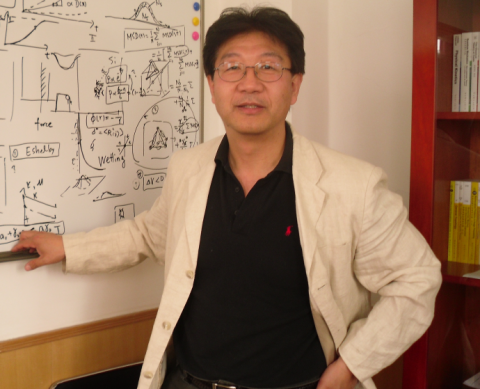Department of Mechanical and Aerospace Engineering Seminar - From patterning heterogeneity to nanoglass: A novel approach to harden and toughen metallic glasses
Supporting the below United Nations Sustainable Development Goals:支持以下聯合國可持續發展目標:支持以下联合国可持续发展目标:
Metallic glass is a quasi-brittle material with little plasticity in monolithic state on continuum scale but tremendous local deformation/plasticity in nano- and micron-scales. One of the remedies to enhance the macroscopic plastic and toughness is to introduce various heterogeneities that are expected to alter the local shear banding. However, these attempts have led to limited and mixed effects. Here, I will present a systematic investigation of heterogeneities and how they affect mechanical properties. We first define two “heterogeneities”: one is the statistical heterogeneity such as the free volume statistical distribution and the other the spatial distribution, or patterning of the heterogeneity. I will then show that the mechanical properties, namely, strength and plasticity, can be affected simultaneously by these two statistical distributions by the change of length scales. For example, for the spatially homogeneous distributed heterogeneity, metallic glasses can be toughened and even “hardened” when the statistical distribution is heterogeneous; but not the other way around. This leads to a new concept of “spatial patterning of heterogeneity” and exploration of the optimal patterns that can enhance strength and toughness. I will discuss our efforts in designing different “patterns” and testing how effective they are in alter mechanical properties in both continuum scale as well as atomic scale. This leads to the emerging idea of nanoglass (NG) which utilizes nanoscale constraints to alter mechanical properties. We show that the working mechanism of NG is closely related to the “spatial patterning of heterogeneity” that could have remarkable mechanical properties if proper length scales of the heterogeneities are organized and function synchronously.

Professor Mo Li received his Ph.D. in applied physics in 1994 from California Institute of Technology. After a brief staying as a postdoctoral fellow at Caltech and the Argonne National Laboratory, he joined Morgan Stanley & Co. in New York. He came back from the investment bank to academia in 1998.
From 1998 to 2001, he was an assistant professor at the Johns Hopkins University. Currently, he is a professor at the Georgia Institute of Technology. Professor Li's research focuses on understanding fundamental properties and processes of materials, and predicting material behaviors. The approaches used in his research are a blend of those from statistical physics, solid state physics, materials science, metallurgy, mechanics and large scale, high performance computing. His research focuses on algorithm development, simulation, and theoretical analysis.
He is the recipient of the National Thousands Talent Program Award of China and the Alexander von Humboldt Prize.